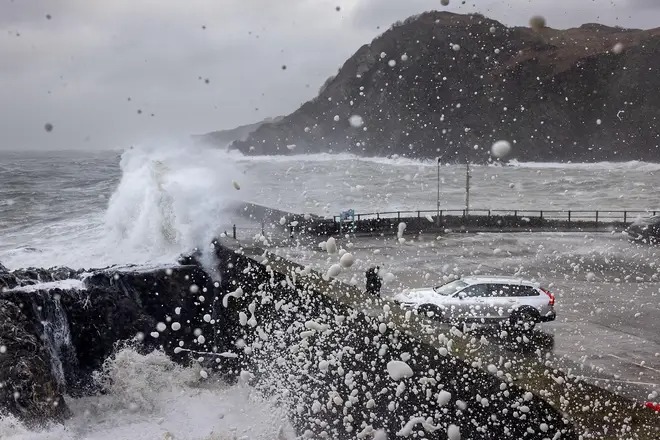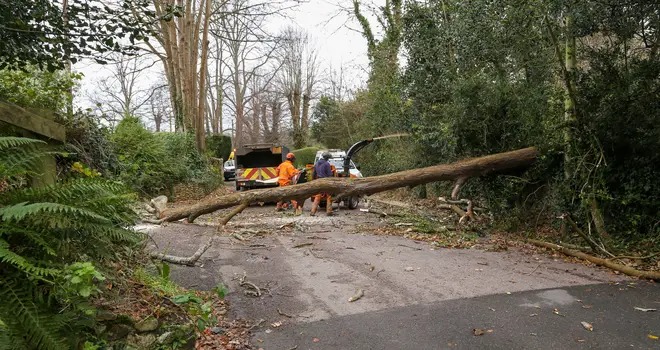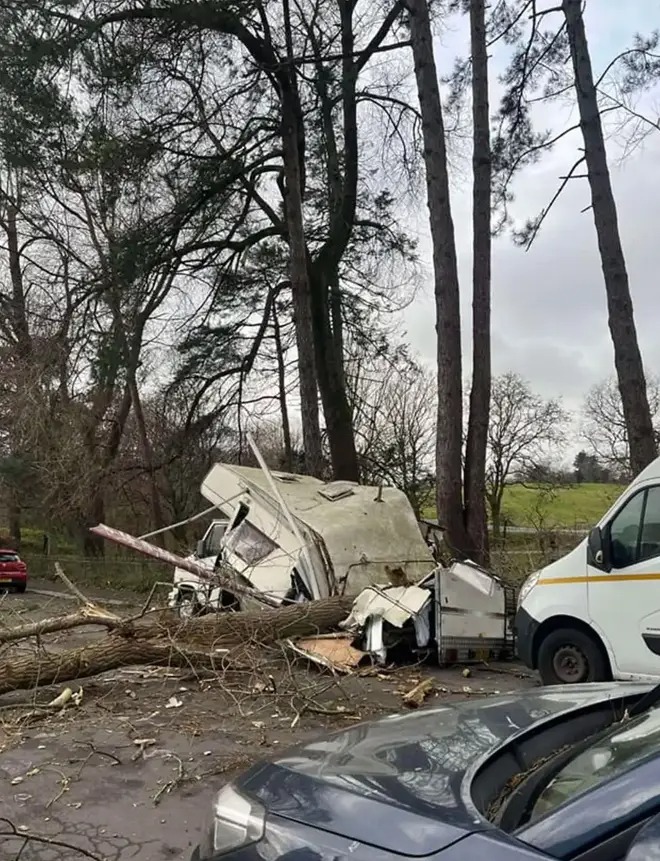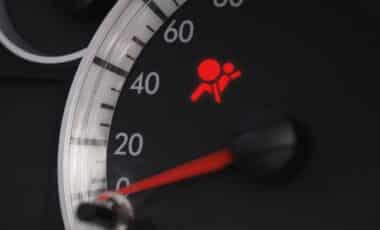In the early hours of Saturday morning, Storm Darragh swept across the UK with a ferocity rarely seen, leaving a trail of destruction in its wake. With 93mph winds uprooting trees, tearing apart historic landmarks, and plunging tens of thousands into darkness, the storm forced the nation to a standstill.
Rare Red Warning Issued for Life-Threatening Weather
The UK has been battered by Storm Darragh, one of the most severe storms in recent years, with winds reaching 93mph (149.67 km/h). A rare red weather warning, signalling a “danger to life”, was issued for parts of southwest England and Wales, as the storm left a trail of destruction and claimed at least one life.
Tragically, a man in his 40s died in Longton, near Preston, after a tree fell onto his vehicle. The Met Office described the conditions as “exceptional,” noting that red warnings have only been issued around 20 times since 2011.

Widespread Damage and Power Outages
The storm’s fierce winds caused significant damage, particularly along coastal areas and in rural regions. In Llandudno, North Wales, a historic pier hut was blown away, while in Sidmouth, Devon, fallen trees blocked roads for hours, isolating homes and hindering emergency services.
Around 86,000 homes were left without electricity at the peak of the storm, according to the National Grid. The most affected areas included:
- Southwest England, where more than 55,000 customers were left in the dark.
- Wales, where remote rural areas experienced prolonged outages due to difficult access for repair teams.
Efforts to restore power began immediately, but some regions are expected to face extended delays due to the scale of the damage.

Transport Paralysed by Storm Darragh’s Extreme Conditions
Transport networks were severely disrupted, with airports, railways, and roads all affected by Storm Darragh. Over 100 flights were cancelled, with Heathrow and Gatwick among the worst-hit airports. Several flights were diverted to Germany, including destinations like Frankfurt and Düsseldorf. Airlines advised passengers to check the status of their flights before travelling to the airport.
Rail services were also disrupted, particularly along coastal lines, where debris on tracks caused significant delays. Meanwhile, motorists were urged to avoid unnecessary journeys as fallen trees and strong winds created hazardous conditions on the roads.
“Temporary restrictions on air traffic are in place to ensure passenger safety,” an air traffic control spokesperson confirmed.

Authorities Respond Swiftly
Local and national authorities have mobilised resources to assist those impacted by the storm. Speaking from Cardiff, the First Minister of Wales, Eluned Morgan, expressed her support for those impacted, stating:
“Our thoughts are with those who have suffered loss or damage to property. Efforts to restore power and clear blocked routes are ongoing.”
Approximately 3 million people in the most severely affected areas received government alerts on their phones, advising them to stay indoors and avoid travel.









